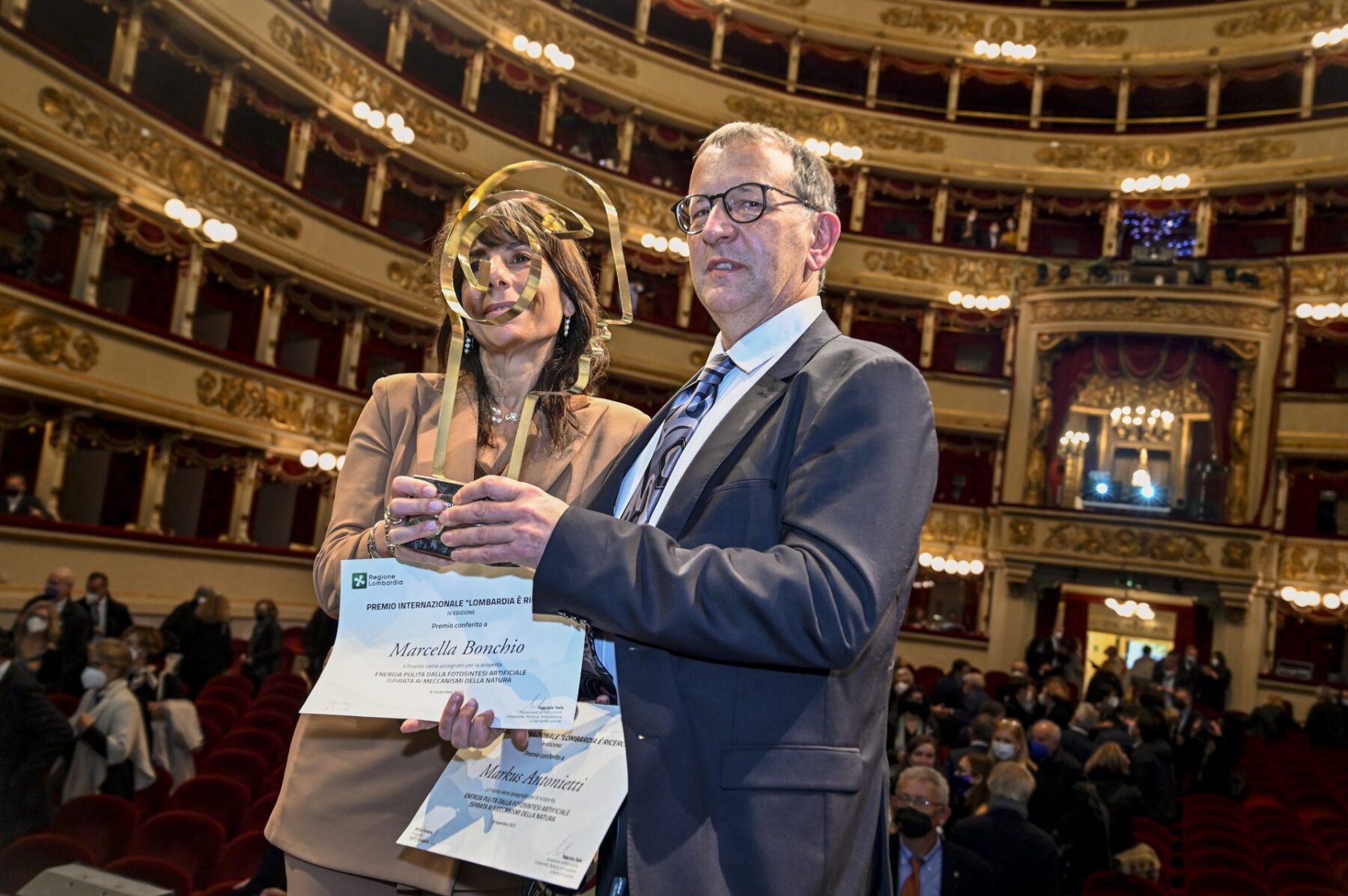
High award for the development of artificial photosynthesis
MPIKG | As one of three award winners, Markus Antonietti will receive the international research prize “Lombardia è Ricerca”, endowed with 1,000,000 euros, at La Scala in Milan. The researchers have developed processes for clean energy generation using “artificial photosynthesis” based on nature’s model.
We humans produce more carbon dioxide than plants and algae can use. “Artificial photosynthesis” now offers the opportunity to eliminate this ecological imbalance and produce clean energy, especially green hydrogen. For this process, the researchers led by Markus Antonietti have explored, imitated and further developed the mechanisms of natural photosynthesis.
The contribution of Markus Antonietti, Director at the Max Planck Institute of Colloids and Interfaces, and his colleagues lies in the development of inexpensive and sustainable catalysts. They are used in “artificial photosynthesis” and can convert the energy of sunlight into molecular processes that are otherwise only known from biology. In this way, oxygen and fuel molecules such as ethanol are obtained from water and carbon dioxide. “The carbon dioxide sequestration of our process is already much higher than that of trees,” says Markus Antonietti, adding: “In joint EU projects with our Italian partners, we envisage fuel molecule productivity of 300 tonnes per hectare.”
The photocatalysts from Markus Antonietti’s research consist of polymeric carbon nitrides. This is a yellow powder obtained from simple molecules such as urea. Like plants, they use sunlight to synthesize sugars, fuels or useful chemicals, but more efficiently and with a single, robust and environmentally friendly material. For this achievement, Antonietti now receives the “Lombardia è Ricerca” prize together with Marcella Bonchio and Pierre Joliot. “This award will also make our sustainable research, which is so important for the future, known to a wider public,” says Markus Antonietti. “There are some very promising options for responding to the climate crisis, but they are not being discussed publicly. That’s why this prize is very important to me,” he explains. Together, the award winners have worked in various fields of research to improve the efficiency of the understand and artificially maximize photosynthesis.
Since 2017, the “Lombardia è Ricerca” research prize has been awarded for the best scientific knowledge in the field of natural sciences. The jury consists of 15 top international scientists. Markus Antonietti is the second prize winner from Germany.
Image reference:
(from left to right) Prof. Dr. Marcella Bonchio, Prof. Dr. Dr. h.c. Markus Antonietti at the presentation of the “Lombardia è Ricerca” prize at La Scala in Milan
©Fondazione Umberto Veronesi